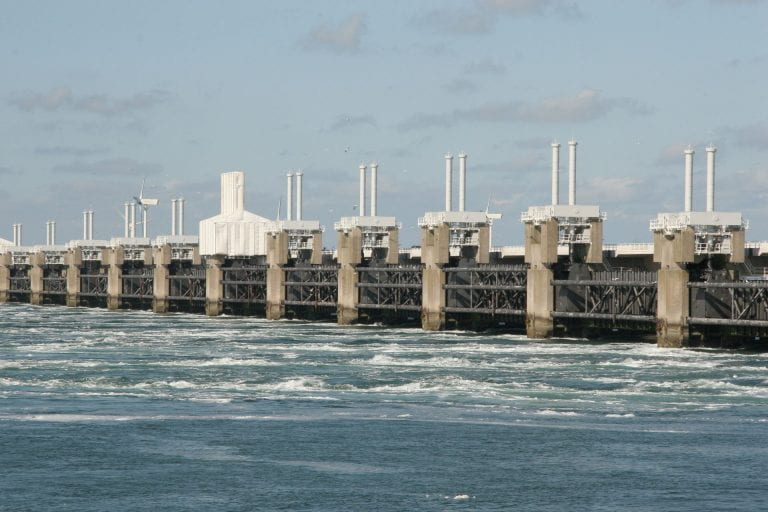
High Seas and Low Lands: The Netherlands and Coping with Life Under Sea Level
By Chayton Bouwmeester, class of 2020.
With roughly a third of the country below average sea level, you can imagine why the Dutch might have an adversarial relationship with water. So far, water levels have been managed by a complex system of dikes, dams, and sand dunes. However, as global water levels continue to rise, the sea threatens to return to some of the most densely populated areas in Europe.
The Past
The Dutch are a people shaped by their relationship to the sea. For more than 2000 years, inhabitants of the flood prone areas in the modern-day Netherlands and Belgium have been actively manipulating the aquatic environments around them. This allowed them to build permanent settlements in these regions, but what basic structures they built offered little in the way of protection. Early lowlanders lived with the constant threat of flood and storm, and at the mercy of the North Sea.
Since as early as the 12th century, the Dutch have been reclaiming land by draining water from swamps or bodies of water to create polders. These polders are the dry areas of land surrounded by dikes that give the Dutch countryside its distinctive look. Today, about 17% of the total land area is reclaimed, including parts of the major cities Amsterdam and Rotterdam. As the old saying goes, God created the world, but the Dutch created the Netherlands.

The Present
Unsurprisingly, living in flood-prone landscapes does come with its risks. Periodic floods have caused deaths in the hundreds of thousands over the course of history. The most recent major flood, the North Sea flood of 1953, killed 1835 people and inundated huge swaths of farmland. Fortunately, this spurred the Dutch government into action, creating the Delta program to continually assess the risk of flooding and implement more preventative measures.
The Delta program was created to continually monitor sea levels and plan projects to minimise the risk of disasters like that of 1953. One of the first projects completed through the initiative was the impressive Delta Works, a series of dams and storm surge barriers totalling up to 30 km in length in the south west of the country. The system shortened the coastline of the country by closing off most sea inlets, minimising the exposure of vulnerable coastline areas.

The Future?
You may be familiar with the myth of the young boy who saved the Netherlands by plugging a leak in dike with his finger. Unfortunately, with some projections indicating a 1 to 2 metre sea level rise by 2100 on the Dutch coasts, this time a little more than a finger is needed to prevent wide scale damage.
The most recent Delta program reports are indicating some concern over whether current plans are sufficient if there is an acceleration in sea level rise. If this were the case, then much of the preventative flood infrastructure will need to be replaced earlier and expanded more than previous estimates suggested, at a massive cost to the Dutch economy.
Of course, if we fail to take serious action on climate change, any attempt at adaption will be a mere finger in the long term. If no attempts are made to lower CO2 emissions, rising sea levels will not stop in 2100 and could even accelerate. Barring any revolutionary feats of engineering, any man-made defences could be overwhelmed by the sea, submerging large areas of the lowlands.
In this scenario, some academics have suggested that a “controlled withdrawal” will need to be considered, away from the coasts and moving part of the population into neighbouring Germany. Judging from my own Dutch family though, I’m certain that asking the Germans for help would be the last resort.
According to the IPCC, sea levels will continue to rise as we progress through this century, continuing at least at the current rate in the most optimistic estimations. This will lead to places that have never encountered flooding beginning to wage their own war against the sea. When this happens, the lessons learned by the Dutch over the last millennium will be of benefit to us all.